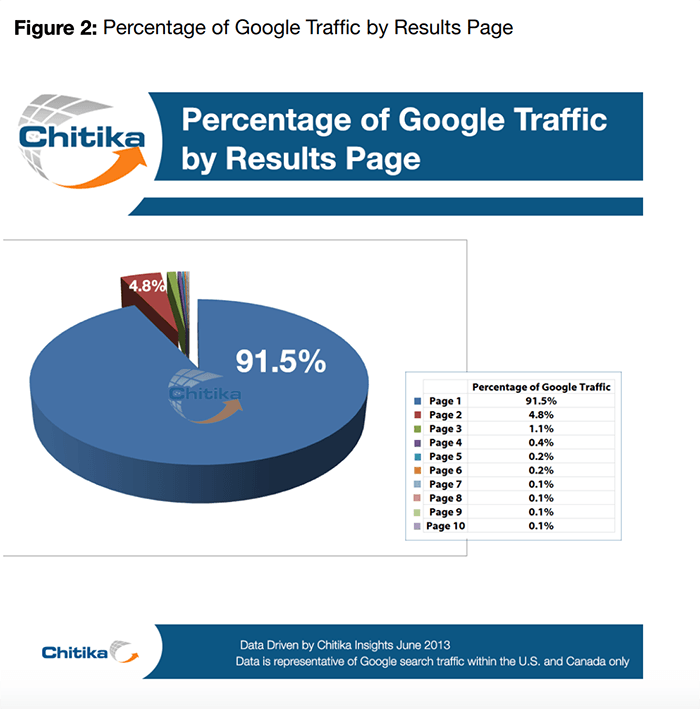
Some situations will make you want to pull your hair out or slowly go bald. Imagine you’ve created a website and been promoting it online for quite some time. You followed your marketing strategy to a T. You’ve implemented SEO by optimizing on-page content and meeting off-page requirements such as social media, backlinks etc. Three months go by… and nothing. Very few people have visited your website from search engines.
So you ask yourself, why is there no organic traffic 3 months after starting my website?

Are You Ready To Work Your Ass Off to Earn Your Lifestyle?
Are you tired of the daily grind? With a laptop and an internet connection I built a small website to generate income, and my life completely changed. Let me show you exactly how I’ve been doing it for more than 13 years.
Well, there are two primary reasons why you may not be getting any organic traffic to your site. The first has to do with competition level. Secondly, the keywords you’re targeting may be hindering your success. Let’s take a deeper look at each of them.
Answer: You Need To Re-Evaluate Which Markets You’re Targeting
Competitive Analysis
One of the reasons you’re not getting organic traffic is that you’re not appearing on page one of search results. Duh. Right?
91.5 percent of search traffic goes to web pages on the first page of Google according to research by Chitika, and a huge chunk of that is limited to spot #1, #2, and #3. So if you aren’t doing great, you aren’t getting traffic.

You need to pay attention to the following when analyzing competitors.
- Site Structure And Code – This includes design analysis (i.e. mobile-friendliness), security (https), load time, schema, and internal link architecture
- On-page Content – The quality and length of web page content, including topics discussed, are important to consider. What are they doing differently from you? Identify how well your competitors are meeting searcher intent. Analyze the level of keywords within their content or check keyword density and compare results to your pages.
- Off-page Metrics – Look at backlink and social signal metrics such as Facebook shares, Twitter followers, Page Authority (PA), Domain Authority (PA) etc.
It’s not to say that you can’t compete with the bigger, more professional sites. Over time, your skills as an affiliate marketer will improve, and your knowledge of how to make your website stand out to visitors (as well as Google), will improve.
That being said, you also need to be realistic about where you’re competing. If you are trying to compete against golf.com using your website bestgolfshoesonline.com, you need to re-evaluate your niche audience. WHO are you targeting? If you are trying to build a comprehensive golf website, it’s going to be tough to compete with a company that has a staff of 20+ people writing content every day.
Choosing a targeted niche would be one way to narrow down your competition. Doing an SEO audit of your site in comparison of their website would be another way to compete more effectively. In other words, what are they NOT doing that you can do?
You may also just be targeting keywords that are too competitive.
Sub-par Keyword Research
Keyword research is one of the most important things you can do for SEO. The difference between getting tons of organic traffic and none lies in the queries you target.
You may use paid keyword research tools like SEMRush, or free tools such as Google Keyword Planner to conduct your research. These tools will identify keywords that people are actually searching for and give you a sense of the competition level.
If you are targeting broad keywords that are highly competitive, it will be super hard to rank a website that’s only 3 months old. You just don’t have the authority yet (unless you have a large social media following to get you clicks and shares).
Finding low-competition keywords is key at this stage of your website. Finding areas where no one special is ranking and knocking your on-page SEO out of the park is a great way to easily land page-1 rankings and a trickle of traffic.
Some SEOs will say that you should always target keywords with a minimum amount of searches. Personally, I feel that’s too much to ask at this point, and I think it’s acceptable to completely ignore traffic stats as long as you have a keyword which is low competition. I don’t need a flow of traffic. I just need proof that my website CAN rank, and then I can build up from there.
As you get these low-hanging fruit spots, you can then slowly start to work towards more and more competitive phrases, building on your current authority (however small it is).
If you are sure you are targeting low competition phrases, then you might be doing something else wrong, like cannibalizing keywords, or using phrases that have incorrect grammar and you’re being unknowingly stuffed in with more competitive searches.
Here’s my breakdown of the most common keyword mistakes newbies make.
3 Month Isn’t That Long!
Even if you are doing everything right, three months just isn’t that long to start getting boatloads of traffic. Honestly, three months is where I started to see an uptick in traffic. From what I’ve seen, if a brand new affiliate marketer starts a website and works diligently, they’ll start to see traffic results in 3-6 months.
In other words, you may just have to continue doing what you’re doing.
The work-results delay is one of the frustrating things about affiliate marketing! Many times, the work you do now will yield results in a month or two.
That’s not to say you should just wait around and see what happens. Make sure to check all your old content, and improve it if you catch mistakes or opportunities. I’d be willing to bet that your first couple articles are not very good!
Also, how often are you posting? Google is a data machine, and to figure out what your site is about, they need more data. A website with 5 long blog posts after 3 months will not be doing as well as a website with 50 shorter blog posts. VOLUME of content matter when getting started!
Small Things To Do That Will Help You Rank
Once you’ve got your website ready to go, there are a few things you must do before adding content to it. Sometimes, the small things are the ones we forget. We get so focused on creating content that the basic elements of ranking in search engines by the wayside.
These basic elements of website creation and ranking could be why you aren’t performing on the SERPs.
1. Create a Sitemap
A sitemap is a collection of all the web page URLs on your site. Sitemaps help search engine bots crawl and discover pages faster. A typical sitemap includes additional details such as publish dates, time, and any visual asset information.
WordPress users just have to install a plugin like Google XML Sitemaps or Yoast SEO plugin.
Tip: Avoid duplicate content by no-indexing your tag and category pages (this should be done automatically by the Plugin)
2. Get Your Social Profiles Active
Social media is a great way to signal to search engines that there’s new activity on your site. Just liking and sharing on Facebook, Pinterest, and Twitter can get the spiders crawling more of your content.
3. Set Up Search Console and Webmaster Tools
Though not a requirement for indexing and rank, Google Search Console and Bing Webmaster Tools are two online tools that can help get your content indexed. That signals to the search engines that your domain is active, and is a direct line to them showing what you publish.
4. Blog Commenting On High Traffic Websites
Though backlinks from blog comments are widely known as being “not influential” for helping you rank, they can still be a way for search engine spiders to find your content. If you’re having trouble getting indexed and ranked, the first step is to make sure everything is getting indexed. Having a link from a high-authority website can ensure that spiders find your stuff.
Of course, you should have a solid internal linking strategy as well, making sure all of your pages are interconnected. That helps the spiders see all of your content, and know precisely what audience you’re targeting with your website.
If Everything Fails
Check for manual penalties if everything fails. You may have been penalized for going against search engine guidelines. This may be the case if you’ve been engaging in spammy activities such as blatantly buying links or scraping content. Google will let you know if you’ve been penalized in GSC under the “Manual Action” section on the left navigation menu.

Nathaniell
What's up ladies and dudes! Great to finally meet you, and I hope you enjoyed this post. My name is Nathaniell and I'm the owner of One More Cup of Coffee. I started my first online business in 2010 promoting computer software and now I help newbies start their own businesses. Sign up for my #1 recommended training course and learn how to start your business for FREE!

 How Will Changing My Website Domain Name Affect My SEO?
How Will Changing My Website Domain Name Affect My SEO?
Leave a Reply